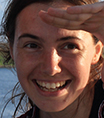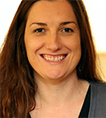(https://doi.org/10.55612/s-5002-042)

Laia Albó
received the MS in Education and ICT (e-Learning) from the Universitat Oberta de Catalunya in 2014 and PhD degree in ICT in 2019 from the Universitat Pompeu Fabra, Barcelona, Spain. She is currently a Postdoctoral researcher at the ICT Department of UPF within the TIDE research group. Her research interests include educational technologies, data-analytics for education, learning design, blended learning and artificial intelligence in education.

Franck Amadieu
is a professor in cognitive psychology and ergonomics at the Université de Toulouse Jean Jaurés, France. His research focuses on cognitive processes and demands of new technologies for learning. It examines the effects of hypertexts, animations, and concept mapping on learning with computers and the learners\\\'s cognitive resources by the prior domain knowledge. The learners\\\' activities like readings behaviors, navigation in hypertexts, building a concept map, or eye movements are analyzed to tap the processes underpinning learning from electronic devices and the linked cognitive load as well. In addition, the research of Franck Amadieu deals with ergonomics issues of Human Computers Interaction in the airplane piloting domain. This work contributes to ergonomics recommendations to improve devices and documents for learning and information seeking.

Panagiotis E. Antoniou
is a senior research associate in the Lab of Medical Physics, department of Medicine, Aristotle University of Thessaloniki. He received a degree in Physics from Aristotle University of Thessaloniki in 1997, a M.Sc. degree in Medical Physics in 2001 from the Democritus University of Thrace and a Ph.D. degree in Medical Physics in 2004 from Democritus University of Thrace. His research interests included Medical Signal processing, Medical Informatics, Educational Technologies and design based research. Currently he is actively researching the impact of co-creative and co-design paradigms in experiential educational techniques (virtual patients, AR and VR in education) as well as the efficacy and implementation facilitation that these paradigms provide. He has participated and managed several EU and nationally funded research projects. He has authored more than 50 publications in peer reviewed journals and conferences. He is a reviewer in several international journals and member of the organizing committee in several international conferences.

Panagiotis D. Bamidis
is a Professor of Medical Physics, Medical Informatics and Medical Education in the School of Medicine of the Aristotle University of Thessaloniki (AUTH), Greece. He designs, implements and evaluates IT and Assistive Technologies systems that improve everyday activities of elderly or other vulnerable groups and improves their health or life quality or improves the education and training of health professionals. He conducts research that attempts to understand how the brain reacts to different stimuli, technological or educational interventions, as well as, the development and evolution of human emotions and sleep transitions. Co-creation and Living Lab approaches are within his active interests. He is the co-ordinator of seven large European projects, and the principal investigator for many national and international funded projects. He is the President of the Hellenic Biomedical Technology Society, the international Society of Applied Neuroscience, a member of the Administration Boards of other societies and patient associations, the Chairman/Organiser of some 19 international conferences and several national Biomedical Technology conferences. Since 2012 he has established LLM Care ecosystem (www.llmcare.gr), the business exploitation of the LLM project, which is a candidate reference site of the EIP-on-AHA. In 2013 he established the Active and Healthy Ageing Living Lab in Thessaloniki (ThessAHALL; http://www.aha-livinglabs.com/) which in 2018 a full member of the European Network of Living Labs (ENoLL). In 2017, he became a visiting Professor of Medical Education Technology, Innovation and Change for the Leeds Institute of Medical Education (LIME) of the University of Leeds, UK. He received Prizes for the Best Track Record in funded research projects (AUTH Research Committee 2009; AUTH Dean of Health Sciences 2016) and Best overall high/extra-ordinary academic performance (AUTH Dean of Health Sciences 2018, 2019).

Merja Bauters
is a research fellow at Legroup, at Aalto University Media Lab. Merja holds the title of docent by the University of Helsinki and obtained her PhD in 2007 in Humanities and Arts, Aesthetics. She has been involved in multiple European and international projects exploring the potentials and challenges that emerging technologies pose in learning in diversity of contexts. Her recent research has been on the role of experience in informal and formal learning in work, cultural settings or higher education, embodiment and enactive approaches to sense-making.

Delcy Carolina Bonilla Oliva
received her engineering degree in Telecommunications from The Central American Technological University (Honduras) in 2014 and her master degree in Media Informatics from RWTH Aachen University and the University of Bonn in 2018. Her research interests include co-design, infrastructuring and crowdsourcing. Currently, she is working as a software developer for oculavis GmbH in Aachen, Germany.

Christoph Brandstetter
is a Junior Researcher and currently working for the Research Studios Austria FG where he is involved in projects covering areas like Social Micro Learning and Conversational AI. He received his engineering master degree in Mobile Computing from the University of Applied Sciences Upper Austria in 2018. Having a strong background in computer science, he has much experience in building both web and mobile applications as well as server side programming. His current research interests are in the field of Interactive Learning environments, Collaborative Learning and Natural Language Processing.

Fabian Dopler
is a Junior Researcher at the Research Studio Data Science and team member of the Mobile Knowledge Lab. He holds a Master of Arts (MA) in Communication, Knowledge, Media from University of Applied Sciences Upper Austria, where he now also works as a part time lecturer. He is involved in Social Micro-Learning research and the operation of a social learning platform at Research Studios Austria Forschungsgesellschaft. His general research interests are E-Learning, Blended Learning, and Smart learning Environments.

Ioanna Dratsiou
received her Bachelor degree from School of Primary Education and her Master degree, Master of Science in Learning Technologies, both from Aristotle University of Thessaloniki (AUTH), Thessaloniki, Greece. She currently works as Research Associate in the Lab of Medical Physics, Medical School of AUTH where she is working in funded research and exploitation projects like LLM Care (llmcare.gr), DS Leisure (dsleisure.eu) and DS Ageing (dsageing.eu). Her research interests include the use of Assistive Technologies for people with Down syndrome and other intellectual disabilities, as well as applications of Medical Informatics with emphasis on elderly healthcare. Additionally, she coordinates the design and development of ISO certificates regarding the conduction of educations in the Lab of Medical Physics. She has contributions in interdisciplinary conferences either as presenter or having poster presentations, while she is involved in writing scientific papers. Her future ambitions include the continuation of research and a doctoral dissertation.

Eva Durall Gazulla
is a post-doctoral researcher in the GenZ project, at the INTERACT research unit at the University of Oulu. In her work, she explores the relations between learning and technology. She is interested in the design of environments that support learners’ agency and critical engagement. To this aim, she has adopted an interdisciplinary approach that builds on science and technology studies, collaborative and constructive design, media studies, as well as on learning and education. She builds on participatory design methods to foster discussion and dialogue with stakeholders throughout the research and design process. Ensuring the process includes diversity of actors and approaches is a central concern in her design and research work towards equitable tools and systems.Throughout her career, she has participated in several research and innovation projects dealing with the use of ICT in higher and Primary Education, as well as in informal and non-formal learning. She has also coordinated international reports on technology forecasts in learning and education, as well as co-design processes in learning design.

Antoine Fischbach
is an Associate Professor in Educational and Psychological Measurement at the University of Luxembourg. Since March 2016, AF holds the position of Head of the Luxembourg Centre for Educational Testing (LUCET; lucet.uni.lu)—a 40-person interdisciplinary research and transfer structure—which he co-created and executively managed from 2012 to 2015. As Head of LUCET, AF is the PI on most of the centre’s commissioned and original research projects. LUCET’s most prominent research undertaking is the implementation, enhancement and assurance of the Luxembourg school monitoring programme (epstan.lu), which aims at facilitating evidence-based decision making in national education. Closely related to the latter is the setup of a unique longitudinal database—panels are entire cohorts—about the evolution of students’ competency profiles and their educational pathways. Additional mission-oriented research projects comprehend national analyses and reporting of international large-scale studies (e.g., PISA), (large-scale) cognitive and language testing, university admissions testing and student course evaluations. Given that many of the aforementioned—partially high-stakes—assessments are completely computer and web based—using LUCET’s in-house online assessment system OASYS—AF could build up solid expertise in managing ambitious and complex technology-rich research endeavours.

Geraldine Fitzpatrick
is Professor of Technology Design and Assessment in the Informatics Faculty at TU Wien. She is an ACM Distinguished Scientist and IFIP TC-13 Pioneer Award recipient. She has worked in academic, research and industry consultancy roles in Austria, the UK and Australia. Her research is at the intersection of social and computer sciences, with a particular interest in collaboration, health and well-being, social and emotional skills, and community building.

Bernhard Göschlberger
is Deputy Studio Director of the Research Studio Data Science and team leader of the MobileKnowledgeLab at the Research Studios Austria Forschungsgesellschaft. He holds a Master\\\'s degree in Software Engineering from the University of Applied Sciences Upper Austria and is a PhD candidate at the Institute of Telecooperation at the Johannes Kepler University Linz. His research interests include Technology Enhanced Learning, Social Computing, Community Information Systems and Social Network Analysis.

Davinia Hernández-Leo
professor in the Department of Engineering at Pompeu Fabra University, Serra Húnter Fellow and ICREA Academia Awardee (2019, 2024). Her research is mainly developed in the interdisciplinary field of Technologies for Education and Collaboration. She is the head of the Interactive and Distributed Technologies for Education group. Previously, she has held positions such as Vice-President of the European Association in Technology-Enhanced Learning, Head of Innovation and Teaching Quality at the School of Engineering, and Commissioner associated to the Vicerector for educational transformation at UPF. She is currently Academic Coordinator of the Department of Engineering and of the Master’s Program in Cognitive Systems and Interactive Media.

Iida Hietala
is a doctoral candidate at Legroup at Aalto University Media Lab. She is a Master of Science (Econ.) in Marketing, and a Master of Social Sciences in Journalism and Mass Communication. Her research focuses on the intersections of arts, consumerism, digital culture, and subjectivity.

Evangelos Kapros
CEO and Founder of Endurae Voice Technology OÜ and Researcher on Educational Technology with the Science Gallery at Trinity College, the University of Dublin. Professional experience in UX and HCI for education for 15 years, and volunteer with the Designing for Children\\\'s Rights Association (D4CR) and Mozilla Game Jams. Evangelos holds academic postgraduate and professional degrees from Trinity College Dublin, Massachusetts Institute of Technology, and others.

Ralf Klamma
holds diploma, doctoral and habilitation degrees in computer science from RWTH Aachen University. He leads the research group advanced community information systems (ACIS) at the information systems chair, RWTH Aachen University. He is known for his work in major projects for Technology Enhanced Learning (PROLEARN, GALA, ROLE, Learning Layers, TELMAP, Tellnet, CUELC, SAGE, BOOST, VIRTUS, WEKIT and tech4comp). Ralf organized doctoral summer schools & conferences in Technology Enhanced Learning, Web Engineering and Social Network Analysis. He published more than 200 scientific papers. He is on the editorial board of Social Network Analysis and Mining (SNAM) and IxD&A. His research interests are community information systems, serious games, augmented reality, web engineering, social network analysis, requirements engineering and technology enhanced learning.

Vincent Koenig
is an experimental psychologist at the University of Luxembourg, specializing in empirical Human-Computer Interaction, including topics such as User Experience, cognitive ergonomics, socio-technical aspects of security, with both applied and fundamental applications in education and workforce environments, security, ethical design and digital cultural heritage. He has also strongly focused on the design of laboratories in support of scientific HCI activities and PPP projects. His vision places UX research at the intersection of academia and non-academic partners (private & public), with equal relevance for both parties. Vincent is currently an assistant professor, head of the HCI research group and director of EPSYLON, a network of eleven experimental psychology labs.

István Koren
is a research assistant at RWTH Aachen University. Previous academic stations included i.a. TU Dresden and PUC Rio de Janeiro. He is working at the information systems chair at RWTH Aachen University. István has worked in several large-scale European research projects in the area of Technology Enhanced Learning (Learning Layers, WEKIT, AR-FOR-EU) and Industry 4.0 (Internet of Production). His research interests are web engineering, Internet of Things and social computing.

LuEttaMae Lawrence
is a PhD candidate in the Digital Environments for Learning, Teaching, and Agency program at the University of Illinois at Urbana-Champaign. Her background as a graphic designer inspired her interest in the design of learning environments. Her research focuses on the affordances of educational technology in formal and informal spaces and how researchers use the design process to facilitate and scaffold interdisciplinary work.

Teemu Leinonen
is an Associate Professor of New Media Design and Learning at the Aalto University School of Arts, Design and Architecture. Professor Leinonen leads the Legroup research group of the Aalto Media Lab. Leinonen’s area of expertise is technology enhanced learning and new media design; especially related to applications, solutions and services of (and for) e-learning, collaborative learning, collaborative group work, creative work and art and design practices. He has published over 35 peer-reviewed scientific articles, over 40 non-refereed articles, 2 books and over 20 published software prototypes and web services.

Janika Leoste
a PhD in Educational Sciences and a M.Sc. in Economics and Finance, is an Associate Professor of Educational Robotics at Tallinn University and an Assistant Professor of IT Didactics at Tallinn University of Technology. Her research focuses on educational robotics, STEAM education, educational innovation, hybrid and blended learning. She has published 60 scholarly articles, including in Frontiers or Francis & Taylor. Since 2019 she is teaching at university, including robot-integrated learning and project based learning projects. She has supervised 12 MA students and has 4 PhD students under supervision. Janika’s previous experience includes developing accounting software and web-based games, producing cartoons and teaching robotics. Janika has successfully applied for research funding from many national and international sources, including the EU’s Horizon Europe – for example, one of her projects is an ERA Talents project EdTech Talents.

Tobias Ley
is a Professor of Learning Analytics and Educational Innovation at Tallinn University where he leads the Center of Excellence in Educational Innovation. His research has won several awards including the state science award of the Estonian Academy of Sciences in 2020, and the European Research Excellence Award for Vocational Education and Training in 2018. He has published over 100 scientific articles. Tobias has acted as general chair of the European Conference on Technology-enhanced Learning (EC-TEL) and was a member of the editorial board of the IEEE Transactions on Learning Technologies. His research interests are in technology-enhanced learning and learning analytics, human computer interaction, adaptive and collaborative learning technology. Tobias holds a PhD in Psychology and Knowledge Management from the University of Graz in Austria.

Naemi Luckner
is a Research Assistant and PhD student at TU Wien. At the Human Computer Interaction group, her research focuses mainly on technology-enhanced learning and game design. She has contributed work to various projects in these fields, such as ‘Aurora’, a technology-enhanced learning platform; ‘Give&Take’, a project about skill and knowledge exchange; or \\\'Mirror\\\' a project to playfully support engagement in physiotherapeutic exercises.

Eva Mårell-Olsson
has many years of experience of conducting projects about the use of digital technologies in the education sector (i.e., K-12). Her research interests concern gamification as a teaching design with the use of contemporary digital technologies and the innovative use of Augmented Reality (AR), Virtual Reality (VR) and Artificial intelligence (AI) in teaching and learning and how these technologies can enhance teaching and learning in various fields and disciplines. She has also been conducting the project “The World’s Smartest Dental Clinic - Digital Transformation of Dental Healthcare”, that included, for example, a project on how to use an AI (e.g., SIA) as a receptionist where patients could ask questions and get answers and communicate with the staff at the clinic.

Emma Mercier
is Associate Professor of Curriculum and Instruction and the University of Illinois Urbana-Champaign. Her research focuses on computer supported collaborative learning in classroom contexts. Most recently she has been focused on the role of teachers and instructors, and how best to use technology to support them while implementing collaborative learning.

Peter Purgathofer
is associate professor at the Institute of Design and Assessment of Technology at Vienna University of Technology. His research is set in the area of information technology and design, ranging from hands-on UX design to policies and societal questions. He is coordinator for the media and human-centered computing master curriculum, and long-time member of the curricular commission for informatics. He teaches the novel »Ways of thinking in informatics« introductory course, as well as a number of master level courses on explorative design, gameful design and related areas.

Björn Rohles
is a doctoral researcher in human-computer interaction at the University of Luxembourg. He holds a magister degree in media studies from the University of Trier, Germany, and specializes in user experience, digitization, and design. As a doctoral researcher, his work focuses on the influences of user experience (UX) on digital concept mapping. He is also the author of books and articles on design and has gained several years of experience in project management of digital strategies and digital products.

Styliani Siouli
receiveda B.A. degree in the area of classical studies (Ancient Greek and Latin) and also a B.A in Primary Education in 2003 and 2007 respectively, from Aristotle University of Thessaloniki (Auth). Then obtained two M.Sc. in Learning Technologies (Auth) and one M.Sc. in Adults Education (Hellenic Open University). She currently works as a teacher at the Experimental School of the University of Thessaloniki. She has twelve years teaching experience including planning, preparing, presenting, and evaluating lesson plans. She integrates Augmented Reality (AR), Virtual Reality (VR) technology and Educational Robotics into the classroom through the development of thematic units of study. She has participated as a coordinator of several EU and nationally funded educational projects.She has authored and coauthored several conference papers. Over the past years she has acted as a reviewer for a variety of refereed national conferences. Her main field of expertise and research interest are Robotics in science education, AR and VR technology integration, understanding by co-designing and curriculum development.

Kairit Tammets
is the head of Centre for Educational Technology (CET). She received a PhD in educational sciences in 2013 from the Tallinn University. Her research has been related with collaborative knowledge building and professional development at the workplace, especially in teacher education context. Her interest is also related with competency-based digital learning ecosystems for supporting workplace and informal learning. Recently Kairit has been contributing to the design and development learning analytics methodologies and tools in several local and international projects of CET.
